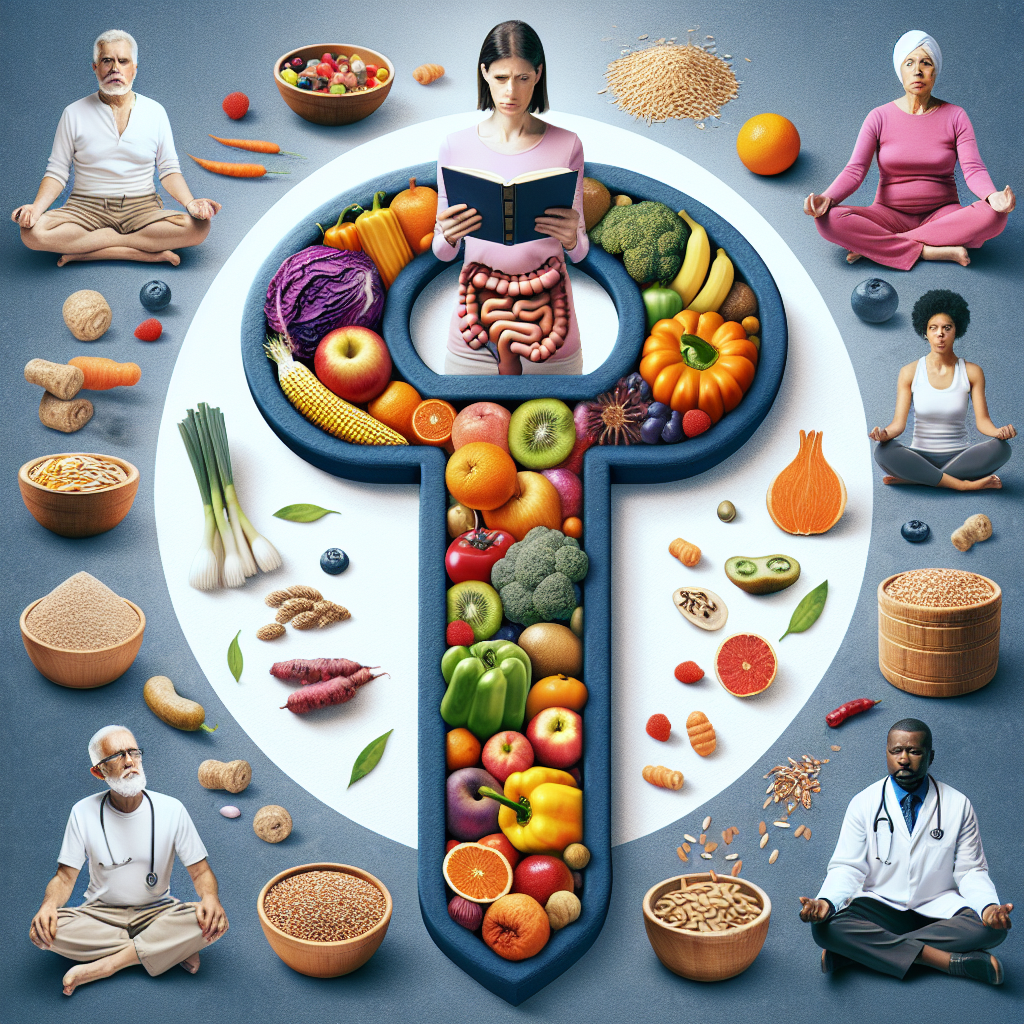What is Irritable Bowel Syndrome?
Irritable bowel syndrome is a chronic disorder of the digestive system. Doctors characterize it by a set of intestinal symptoms without a visible organic cause. It is not an inflammatory bowel disease like Crohn’s disease or ulcerative colitis. IBS affects how the brain and intestines interact, which alters bowel movement and pain perception.
Causes and Risk Factors of IBS
The exact causes of irritable bowel syndrome remain unknown. However, researchers identify several possible factors. These factors often work together to trigger symptoms. Abnormalities in intestinal muscle contractions, either above or below usual function, play a role. A dysregulation of the intestinal nervous system, which manages communication between the brain and the intestine, also influences the picture. Minor intestinal inflammation or alterations to the gut microbiota also contribute to symptoms. Additionally, previous severe intestinal infections increase the risk. Stress and anxiety are significant aggravating factors, as the brain and intestine communicate closely.
Symptoms and Signs of Irritable Bowel Syndrome
The symptoms of irritable bowel syndrome vary considerably from person to person. Manifestations often appear and disappear. Abdominal pain, often related to bowel movements, is the primary symptom. Cramps, bloating, and excess gas are also common. IBS presents in different forms: one dominated by constipation (IBS-C), another by diarrhea (IBS-D), and a third, mixed type (IBS-M). People also describe changes in stool frequency or consistency. An incomplete evacuation sensation also affects many patients.
Diagnosis of Irritable Bowel Syndrome
The diagnosis of irritable bowel syndrome relies on symptoms and the exclusion of other diseases. Doctors use the Rome IV criteria to diagnose IBS. These criteria require recurrent abdominal pain, occurring at least one day per week on average over the last three months, associated with at least two of the following: improvement after defecation, a change in stool frequency, or a change in stool form or appearance. The doctor may recommend blood tests, stool tests, or a colonoscopy to rule out other gastrointestinal conditions. This process ensures an accurate diagnosis and prevents inappropriate treatments.
Treatments and Management of IBS
Managing irritable bowel syndrome involves a comprehensive approach. Treatments aim to alleviate symptoms and improve quality of life. Dietary modifications are the first line of treatment. A low-FODMAP (Fermentable Oligosaccharides, Disaccharides, Monosaccharides, and Polyols) diet helps many people. Doctors also recommend increasing fiber intake for constipation or reducing caffeine and fatty food consumption for diarrhea. Stress management is crucial; techniques such as meditation, yoga, or cognitive-behavioral therapy (CBT) provide relief. Medications relieve specific symptoms: antispasmodics for pain, laxatives for constipation, or antidiarrheals. Probiotics also show potential for improvement in some patients.
Recent Scientific Advances in IBS
Research on irritable bowel syndrome is progressing rapidly, with notable advances in the second half of 2025. Scientists are focusing on understanding the crucial role of the gut microbiota. New studies are exploring fecal microbiota transplants (FMT) as a therapeutic option. While still experimental, FMT shows promising results in restoring a healthy microbial balance in some patients who have not responded to conventional treatments. Concurrently, clinical trials are testing new modulators of visceral pain, including drugs targeting specific receptors in the intestine. These approaches aim to reduce pain sensitivity. Personalized treatment, based on the patient’s genetic profile and microbiota, represents another promising avenue, although further research is needed to generalize these approaches.
Preventing Irritable Bowel Syndrome
Preventing irritable bowel syndrome can be difficult, as the exact causes remain unclear. However, certain strategies help minimize the risk of triggering or aggravating symptoms. Adopting a balanced, fiber-rich diet promotes good digestive health. Maintaining a low stress level through relaxing activities is essential. Avoiding foods known to cause intestinal problems, such as fatty, spicy foods or certain dairy products, can also prevent flare-ups. Adequate hydration and regular physical activity also contribute to gut health.
Living with Irritable Bowel Syndrome
Living with irritable bowel syndrome involves adapting and managing symptoms daily. The first step is to identify dietary and emotional triggers. Keeping a food diary helps many people recognize problematic foods. Adopting a healthy lifestyle, including a suitable diet, regular exercise, and relaxation techniques, reduces the frequency and severity of crises. Psychological support or participation in support groups offers valuable help. Close collaboration with your doctor allows for treatment adjustment. A better understanding of oneself improves the quality of life for people with IBS.
Frequently Asked Questions (FAQ)
Does stress contribute to irritable bowel syndrome?
Yes, stress can trigger or worsen IBS symptoms. The brain and gut are closely connected. Stress affects intestinal motility and sensitivity.
What foods should be avoided with irritable bowel syndrome?
Foods to avoid vary from person to person. However, foods rich in FODMAPs, dairy products, gluten, fatty or spicy foods, or caffeine often worsen symptoms. Keeping a food diary helps identify personal triggers.
Does irritable bowel syndrome progress to cancer?
No, irritable bowel syndrome is a functional disorder. It does not increase the risk of developing colorectal cancer or other serious intestinal diseases.
Can irritable bowel syndrome be completely cured?
There is no single cure for IBS. However, symptom management allows many people to achieve significant remission and lead a normal life. Personalized approaches are essential.
Are probiotics effective for IBS?
Yes, probiotics can be effective for some patients with IBS. They help restore gut microbiota balance and reduce symptoms like bloating and pain. Efficacy varies depending on the strain and the patient.
Additional resources
- To extend your knowledge and decipher other markers, more articles are available here.
Confused by your blood test results?
Get instant clarity. AI DiagMe interprets your blood test results online in minutes. Our secure platform translates complex medical data into an easy-to-understand report. Take control of your health today. Visit aidiagme.com to get your personalized insights now.

